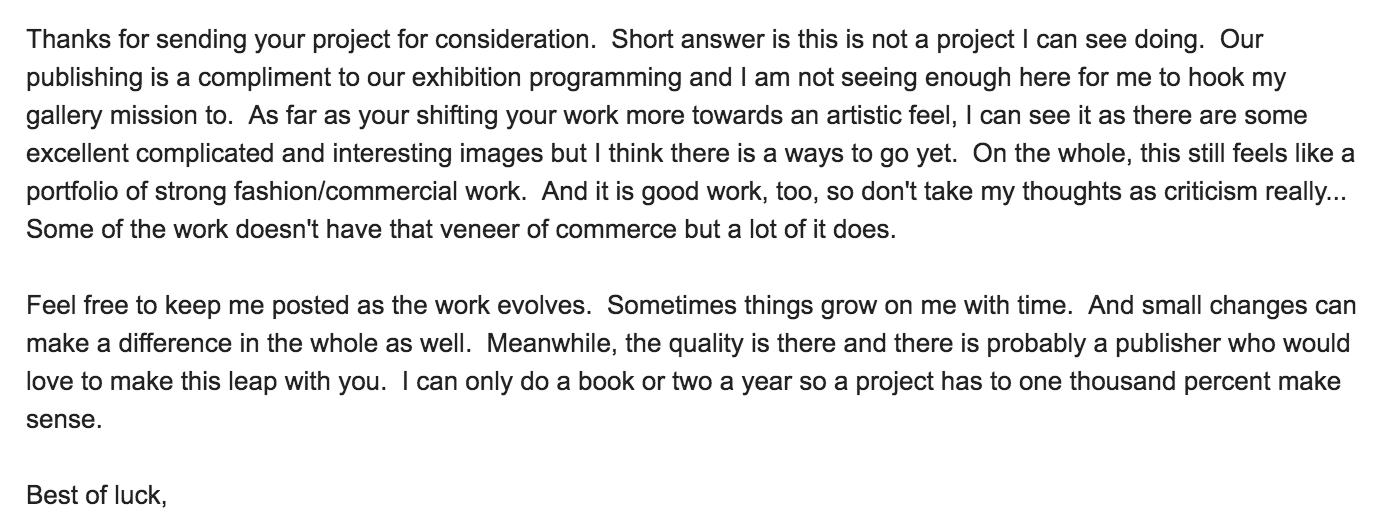
Ok, guys, let's talk about handling rejections both internally and externally. Again, I will tell you what works for me, but we are all different so only you know what works for you:)
Internally I handle rejections in 3 steps.
Step one is detaching emotions from the information. The best way to do it is to let the time pass and best spend this time on what you are good at. How much time depends on how much you wanted this opportunity. Say your editorial was rejected by magazine #n at your list, maybe 20 min is enough before you move to the next step. Didn't get a dream-job or big client decided to go another way - wait for 3 days or however long you need to start thinking rationally. While waiting, maybe read your favorite blog or arrange a photo shoot with a model you like.
Step two is analyzing what can be improved. Like say you had a photoshoot from hell - nothing worked, the client was grumpy, the light was shitty, post-prod took forever, and the client disliked the photos. Ask yourself where have you get this client, did you hear any red flags from him/her that you ignored? Did you set expectations, right? What did you do wrong, technically? If the light was shitty - was its location or time of the day? Or maybe you could bring studio light on set, but then would it be justified effort-wise. It's also a good time to reach out to your client and see how he/she sees the situation.
Step three - new plan. Using the results of step two, how will you change your process in the future? Should you rewrite the proposal, shuffle around photos, maybe organize a shoot that adds new images you need, or perhaps you should do nothing, and it was just a stroke of bad luck. In any case, you have a chance to start anew, and now you know better.
As for the external part, I got 4 points for you.
- Not every criticism will be useful. You should thank a person for any constructive suggestions, but sometimes because of differences in background, experience, and taste, you just see things in very different ways.
- Criticism is still an opportunity (if you are very bad, you'll just be ignored). Ask follow-up questions, see if the person can recommend you to someone else who can be interested in your work, maybe give a person and update in the future when you have some success.
- Never ever go into complaining and explaining, not for professional connection, especially not online. Other people are entitled to their opinion about your work; if it's oversimplified or plain mean, it's a reflection of them and not of you.
- As we went into online question...it seems like what pisses off people the most is when they were taught not to do X or Y or Z, and then they see a photo that does X, Y and Z and gained a lot of positive attention - that's where the nastiest critique happens, and then your viewers come to defend you, and you learn so many new things about yourself :)